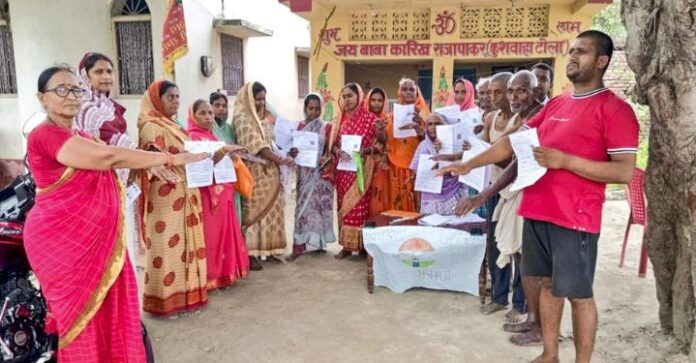The Supreme Court of India is set to hear a series of petitions on July 10, 2025, contesting the Election Commission of India’s (ECI) decision to carry out a Special Intensive Revision (SIR) of the Bihar electoral rolls. The petitioners claim that the process is flawed, discriminatory, and could disenfranchise over 4 crore voters—nearly half the state’s electorate—through an overly restrictive and poorly timed verification process.
Petitioners’ Main Arguments:
- The documentation required for verification is too stringent. Common IDs like Aadhaar and Voter ID cards are reportedly not accepted, with voters asked to furnish birth certificates or parental citizenship proof—documents many rural and poor citizens lack.
- The process is being carried out during Bihar’s flood-prone monsoon season, making door-to-door enumeration logistically impractical.
- Petitioners argue the revision is unconstitutional, violating Articles 14, 21, 325, and 326, and is inconsistent with the Representation of the People Act, 1950.
- The revision targets vulnerable groups—including Dalits, Muslims, and migrant workers—and could lead to engineered exclusions ahead of the November 2025 Assembly elections.
Who’s Involved?
The petitions have been filed by a range of individuals and organizations including:
- Association for Democratic Reforms (ADR)
- People’s Union for Civil Liberties (PUCL)
- Social activist Yogendra Yadav
- MPs Mahua Moitra (TMC) and Manoj Jha (RJD)
Senior advocates Kapil Sibal, Abhishek Manu Singhvi, and Gopal Sankaranarayanan are arguing the case, urging the Court to intervene to prevent mass disenfranchisement.
What Could Happen in Court?
On July 10, a two-judge bench (Justices Sudhanshu Dhulia and Joymalya Bagchi) will assess whether the ECI’s process meets legal and constitutional standards. The Supreme Court may:
- Issue a temporary stay on the voter verification or deletion process.
- Extend the July 25 deadline for verification.
- Clarify what documents are valid for voter verification.
- Demand changes to the ECI’s procedure to ensure no voter is unjustly removed.
Political Ramifications
The move has triggered backlash from opposition parties, who call the revision a “votebandi” (voter suppression drive). They claim it’s timed and designed to influence the upcoming state polls. Congress, RJD, TMC, CPI(M), and others have expressed support for the petitioners.
Meanwhile, the BJP and its allies defend the ECI’s revision as necessary to clean up voter rolls and remove duplicate or bogus entries.
Broader Implications
The outcome of this case could:
- Affect millions of voters in Bihar directly.
- Set a national precedent for how voter roll revisions are conducted.
- Influence similar exercises in other states such as West Bengal or Delhi.
- Test the balance between electoral integrity and constitutional rights in the world’s largest democracy.
Conclusion
With over crores of voters at potential risk of involuntary deletion, the upcoming SC hearing isn’t just about procedural compliance—it touches on the core of democratic participation. As India gears up for pivotal elections, the Supreme Court’s ruling will be a critical test of whether administrative rigor can coexist with constitutional fairness.

